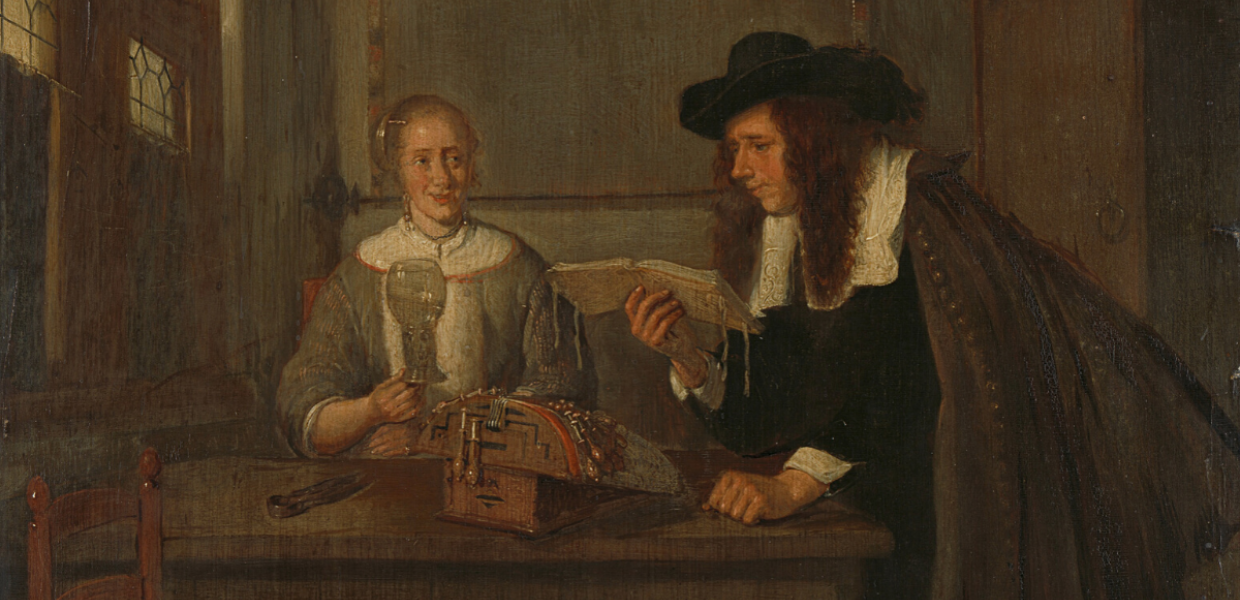Surveying our Community
The Copyright Community of the Europeana Network Association is composed of over 300 professionals in the cultural heritage sector. Ahead of 2020, its Steering Group is developing a work plan that will define how the community intends to contribute to the needs of the sector. We want this work plan to be meaningful and impactful, so we have surveyed professionals on the key challenges they face around copyright. Over 100 practitioners from libraries, museums and archives to aggregators, NGOs, government agencies, educational and research institutions and the publishing sector answered the survey and below you can see some of the main take-aways that will feed our work plan.
Challenges for the Sector
A number of shared issues for the sector emerged from our survey:
Understanding Copyright
The biggest challenge our community perceives is the lack of copyright knowledge among cultural heritage professionals and an absence of training opportunities. For many respondents, there is a lack of institutional support towards the development of well-informed, organisation-wide copyright strategies, policies and copyright literacy in general. Others referred to the lack of confidence of cultural heritage professionals; they perceive copyright as something that only lawyers can understand or deal with. There is also some aversion towards taking risks in the area of copyright.
While generally respondents understand the significant impact that the 2019 Directive on Copyright in the Digital Single Market will have on the sector, some do not feel familiar enough with its content. Cross-border collaboration is also an important issue. The difficulty of assessing the different laws of different countries before a project can move forward can be a huge barrier.
Finally, this challenge goes beyond the cultural heritage institution itself. Those in the education sector suggested that it’s not easy to understand what material can be reused and how. They also referenced difficulties in making students realise copyright law does not permit the free reuse of all works, even where the purpose is purely educational. Some emphasised the difficulties teachers encounter in finding suitable material, particularly audiovisual and music, and some pointed at the paradoxical situation of not being able to use material that is in the public domain because a restrictive licence has been applied or protection is claimed over the digital reproduction.
Rights Clearance
The second most popular challenge was felt to be the difficulty of identifying the copyright status of collection items. Many pointed out that identifying the right(s) holder(s) and clearing rights is extremely time consuming, that there is very limited or incomplete information available on some works, that there can be multiple rights holders, and complex laws and unclear contracts need to be interpreted as part of the process.
Many also referred to the difficulties in dealing with orphan works (works whose author or rightholder cannot be identified or located) and particularly to the diligent search requirement established by the Orphan Works Directive. Rights clearance is a particular challenge for audiovisual works, where for any single work there can be a wide range of rights and many different rights holders.
Again, the lack of institutional support is a challenge. Often, clearing copyright is not seen as part of the overall process of creating and curating the collections, which means the necessary resources are not invested.
Other Challenges and Areas of Interest
Other copyright-related challenges that respondents raised were in the areas of text and data mining, especially of cultural heritage; licensing and contracts; moral rights and risk management. Many participants also expressed insecurity about how to use and interpret Creative Commons licences as well as Rights Statements. There was also an interest in the relationship between traditional cultural expression and copyright, where works from certain cultural groups may be considered to be in the public domain, but their re-use could still harm or offend the communities from which they originate.
Beyond copyright, there were many questions around data protection, image and personality rights and the right to be forgotten. Additional elements such as neighbouring rights or protecting digital reproductions of works were also mentioned, as well as contractual barriers or other barriers imposed by third parties (not necessarily the rights holders) making the reuse of the work difficult. Some participants also underlined a lack of coordination by libraries, archives and museums at the national level regarding these matters as a challenges in their work.
Suggestions from our Community
In addition to identifying our members’ concerns, our survey also asked respondents to suggest how the Copyright Community, or even Europeana, could be helpful to them, and we came away with a wealth of suggestions:
Developing training resources to address a lack of copyright knowledge.
Ensuring the Copyright Community serves as a platform to exchange good practices and examples, and connects local reference points such as institutions or government bodies and expert networks.
Providing case studies and examples to address the challenges around rights clearance.
Advocating for clear national and institutional policies that make sure that digital reproductions of works in the public domain remain in the public domain.
Providing more content translated into various national languages.
Encouraging the use of rights standardisation systems in open licenses and rights statements.
Providing detailed guidelines and procedures to help organisations through the process of using rights statements correctly.
Taking actions to demonstrate and raise awareness of the negative impact of inaccurate rights statements.
Offering clearer descriptions for the rights statements that also take into account the role of exceptions.
Creating an open GLAM coalition with Creative Commons, Wikimedia, and others working in the open space
As far as possible, using non-technical language that is accessible to all.
Our next steps are to sit down in December and go through these contributions to build a meaningful work plan for 2020. To stay up-to-date with the work plan and become part of a global copyright discussion join the Europeana Network Association Copyright Community, or don’t hesitate to get in touch if you have further thoughts!




